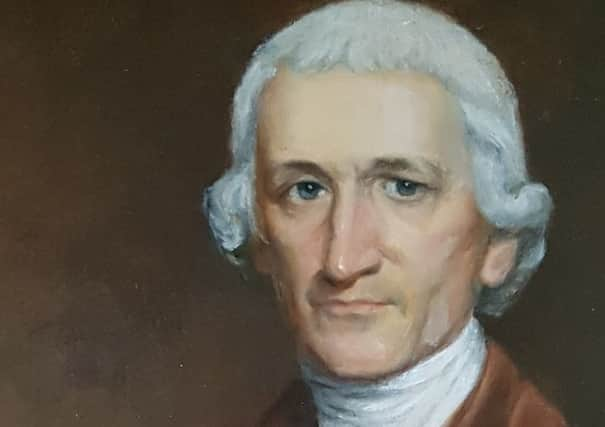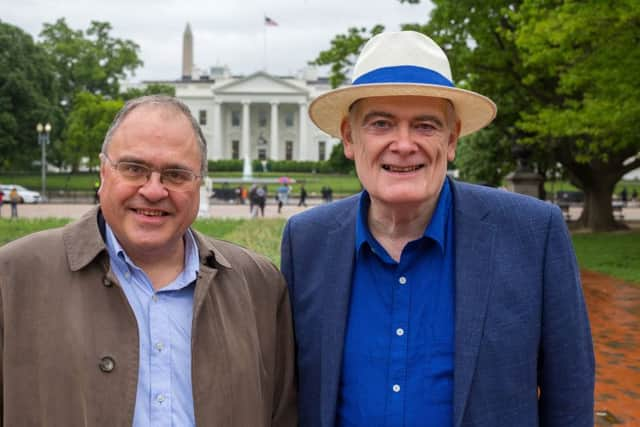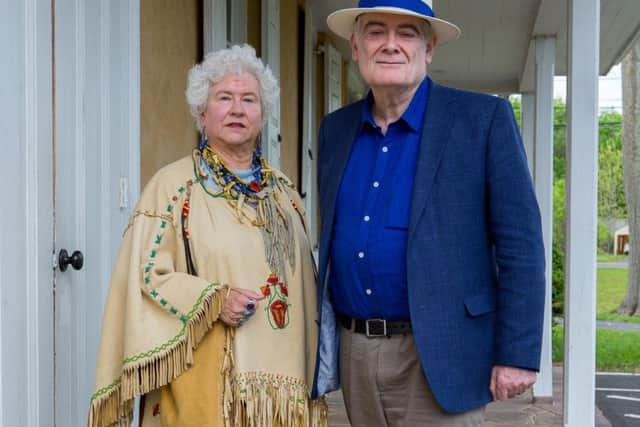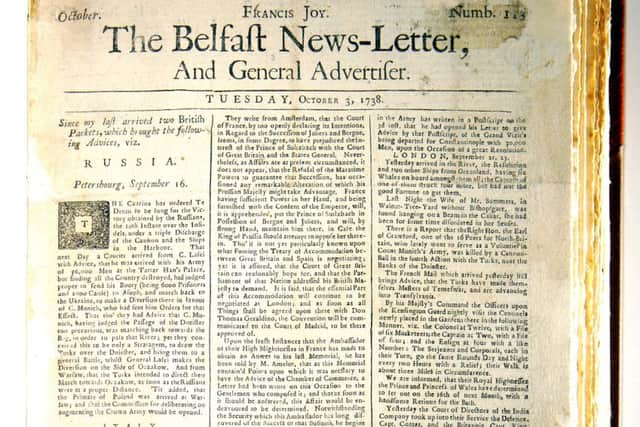Charles Thomson, the epitome of the success of the Scots Irish


There is no more vital part of northern Protestant culture than Ulster’s links with America.
Like many Ulster people, my great grandparents had Scottish sounding surnames such as Ferguson, Henderson, Wilson, Blair.
Advertisement
Hide AdAdvertisement
Hide AdYet I was not taught about the influence of the Scots Irish in America at school, or if so only fleetingly (my primary school visited Omagh’s Ulster American Folk Park).


Even though I attended two post primary schools that were as British in outlook as exist in Northern Ireland, we were taught — among other periods — modern Irish history (using text books that were biased to a nationalist narrative, by emphasising past injustices).
Perhaps there are schools that teach a pro imperial view of the past, but not the ones that I attended in North Down and East Belfast.
By my mid teens I knew as much about the Catholic Irish influence in the United States, the Kennedys and so on, as I did about the Protestant Irish influence on that country.
Advertisement
Hide AdAdvertisement
Hide AdIt was with interest, therefore, that on Tuesday night I was at Blackstaff Studio, Belfast for the packed preview of a BBC film on Charles Thomson, an Ulsterman who influenced the Founding Fathers of the United States. ‘The Man who Told The Truth’, is shown on BBC Two tomorrow night.


Thomson signed the American declaration of independence. As secretary to the 1776 Continental Congress, his name appears below John Hancock, congress president.
His name is also visible in the famous News Letter of late August 1776 that reports that July 4 declaration. We were not, as the charming myth goes, the first newspaper in Europe to report that dramatic document, but we are one of the only newspapers that did report the declaration and is still in publication today (The Times of London was not launched until 1785).
As the documentary puts it, men such as Thomson were signing their death warrant if America’s revolution against the British crown failed (the Presbyterian United Irishman, Henry Joy McCracken, grandson of News Letter founder Henry Joy, was hanged in Belfast after the faliled 1798 rising).
Advertisement
Hide AdAdvertisement
Hide AdThomson was known as the man who told the truth because he was an early critic of slavery.


The declaration of independence famously declares not only that all men are created equal, but that that is a “self evident” truth.
The only way to reconcile that statement with the fact of slavery is that the Founding Fathers, for all their brilliance, did not consider negroes, as they would have called them, to be men. Thomson saw the nonsense of this, before even William Wilberforce abolished UK slave trade in 1807.
He also saw the injustices done to native Americans and helped them against Pennsylvania’s rulers.
Advertisement
Hide AdAdvertisement
Hide AdThis latter insight is all the more noteworthy when you consider the context in which Thomson grew up.


Born in Maghera parish in 1729 he travelled to the American colonies in 1739 after his mother died.
Native Americans and settlers were at that time often in conflict.
The first surviving Belfast News Letter dates from that era, October 1738, and it reports on how four more families in Virginia have been “murdered by Indians” and describes how the colonists were in “in great apprehension” of natives.
Advertisement
Hide AdAdvertisement
Hide AdThe Belfast News Letter of 1739 possibly even reports on the boat that took Thomson to America.
In May that year an advert (see below) publicises a boat from Belfast to America leaving in June (which might have called at Londonderry, where Thomson left).
The boat sailed to Newcastle near Philadelphia, which is where he landed in the New World aged 10.


There are only two ads for boats to America in nine months of surviving News Letters from 1738-1739.
Advertisement
Hide AdAdvertisement
Hide AdMost early News Letters are lost, until the 1750s. By then traffic to America was heavier, and there are more boat ads.By the 1780s, after independence, there were almost weekly boat journeys westward.
This helps explain why there were so many Scots Irish in the fledgling United States: by some estimates 15% of the population.
Some commentators, including the tycoon JD Vance and the former US senator James Webb, think of the Scots Irish as one of the key groups in America then and now.
We were greatly outnumbered by English and Germans, but noted as a hardy group who left a stamp on what became a superpower.
Advertisement
Hide AdAdvertisement
Hide AdThe TV documentary, well presented by the distinguished foreign correspondent Bruce Clark, gives a flavour of this still neglected history.
One of my quibbles is the way northern Protestants have edged the teriminology away from Scots Irish to Ulster Scots. Is this to distance it from ‘Irish’ connotations?
Scots Irish is still a term educated Americans understand.
Thomson is the classic example of it. He was actually born here.
Recently I took American family friends from Maine, where I was born, to the Andrew Jackson homestead in Carrick. Of the US presidents of Ulster origins, he arrived in the colonies two years after he was born. Like Thomson, he is as close to Northern Irish as you can be.
Advertisement
Hide AdAdvertisement
Hide AdThis is not only a key part of our history, it could be a bridge between Catholic and Protestant. Both communities have deep links with America, and reverence for it.
Increasing numbers of Irish Americans identify with the establishment Republican Party, once a mostly Anglo, Protestant grouping.
This gradual political shift is one reason why Sinn Fein’s criticism of Donald Trump has been muted.
• This advert below from May 1739 is the second surviving News Letter ad for a boat to America from the earliest surviving copies of the paper, from 1738 & 1739. Thomson landed, like this boat, in Newcastle:
BOAT TO AMERICA
Advertisement
Hide AdAdvertisement
Hide AdTHE good Ship WILLIAM and JAMES, burthren two hundred Tuns, Jame s Agnew Owner, commanded by John Adams; well fitted, and of excellent Accommodations; being a Ship built for the Trade, and very Commodious for carrying PASSENGERS; Will be clear to sail from the Lough of Belfast, where she now lies, for New-Castle or Philadelphia, in America, gainst the first Day of June next. Any Persons, who incline to go as Passengers, Apprentices, or Redemptioners, may apply to said James AGNEW, HENRY Mc.LACHLEN, or JOHN BOYD in Belfast, who will agree with the easiest Terms, and they may depend on the best of Usage.
• ‘The Man who Told The Truth’, BBC Two Northern Ireland, Sunday February 11, 10pm
• Ben Lowry (@BenLowry2) is News Letter deputy editor